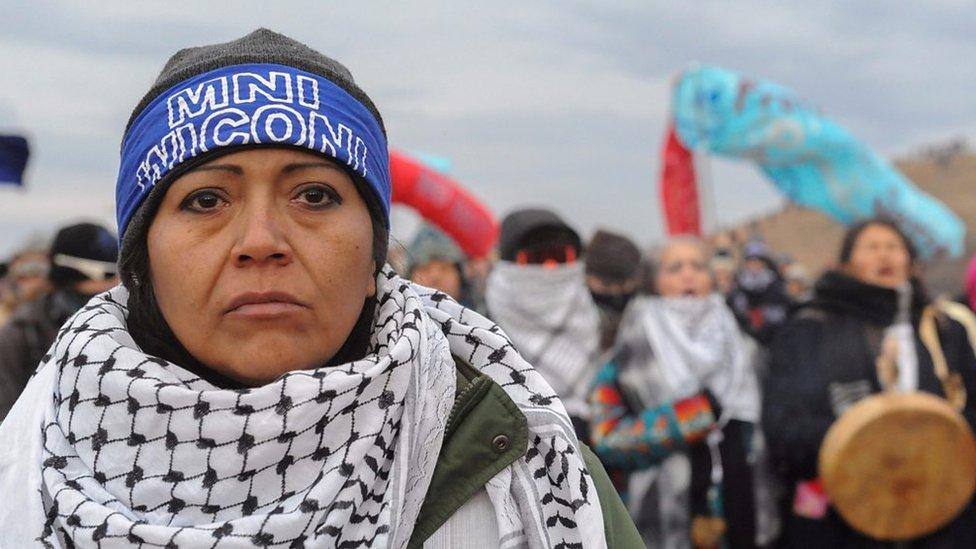Dakota pipeline: US judge denies request to halt construction
- Published
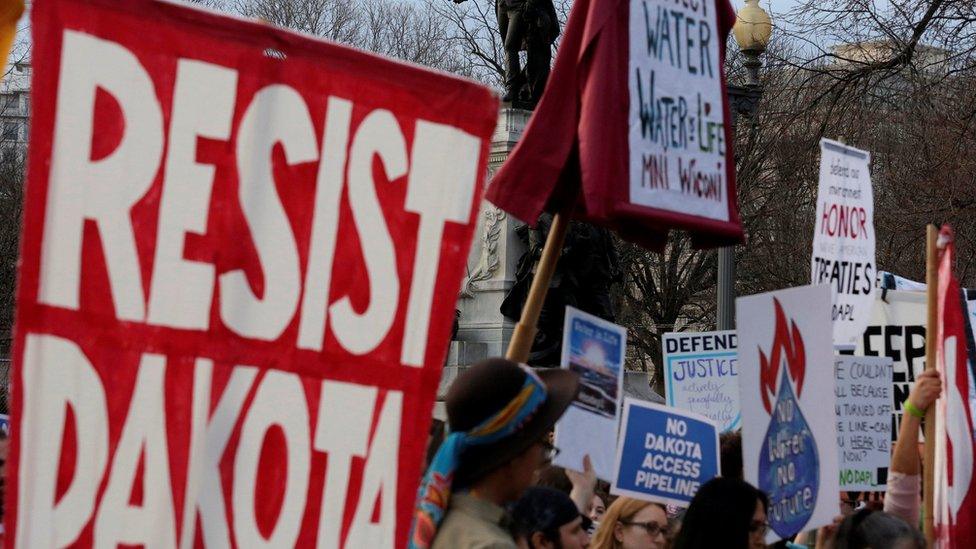
A lawsuit against the pipeline is currently under way
A US judge has rejected a request from two Native American tribes to halt construction on the controversial Dakota Access oil pipeline.
The final stretch of the $3.8bn (£3bn) pipeline is being built under a North Dakota reservoir.
The Standing Rock Sioux and Cheyenne River Sioux tribes have filed a lawsuit against the pipeline, saying it endangers their drinking water.
They also say the pipeline will damage sacred burial sites.
The pipeline, when complete, is expected to transport about 470,000 barrels of crude oil a day from North Dakota to a terminal in Illinois, where it can be shipped to refineries.
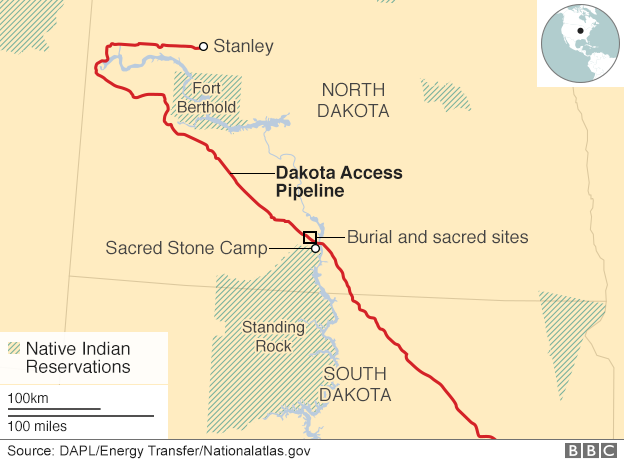
The developer, Energy Transfer Partners (ETP) has completed most of the pipeline, and began work on the final section after the army gave it permission to proceed on Wednesday.
The Standing Rock and Cheyenne River tribes asked for a temporary injunction against construction, pending a lawsuit against the pipeline.
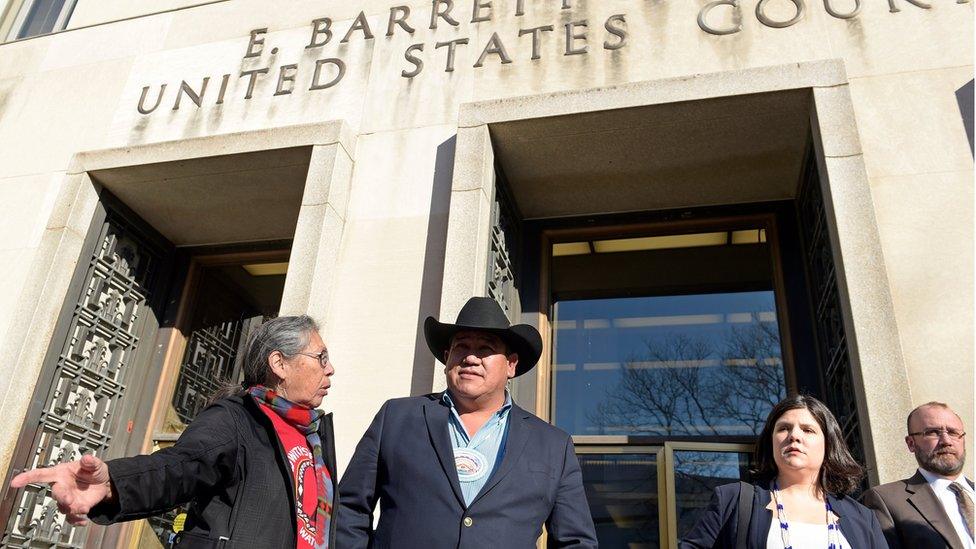
Tribe leaders said they were disappointed at the ruling but would continue to fight the pipeline
They argued that the pipeline would hurt their water supply, and prevent them from practicing religious ceremonies at the lake.
However, developer ETP and the army argued against an emergency injunction, saying there was time for the lawsuit to be heard before oil began to flow through the pipeline.
Construction on the pipeline had stalled for months due to opposition from protesters.
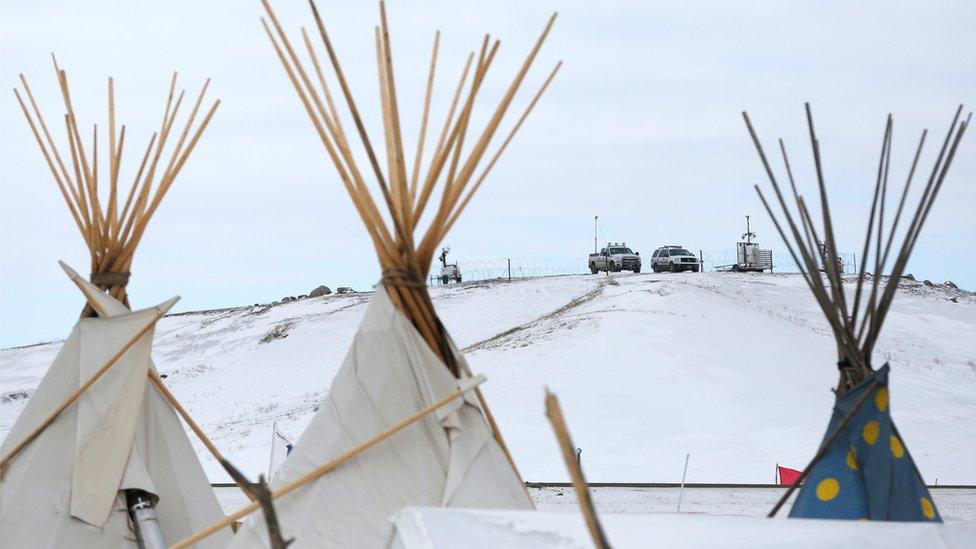
Protesters have been camping near the site of the pipeline
Thousands of predominantly Native American protesters have demonstrated against the pipeline's construction and set up camps along the final stretch.
Nearly 700 people have been arrested since protests first began last year, according to law enforcement officials.
The Obama administration announced in September that it would not allow the project to proceed, but Donald Trump overturned the decision in one of his first acts as US president.
- Published7 February 2017
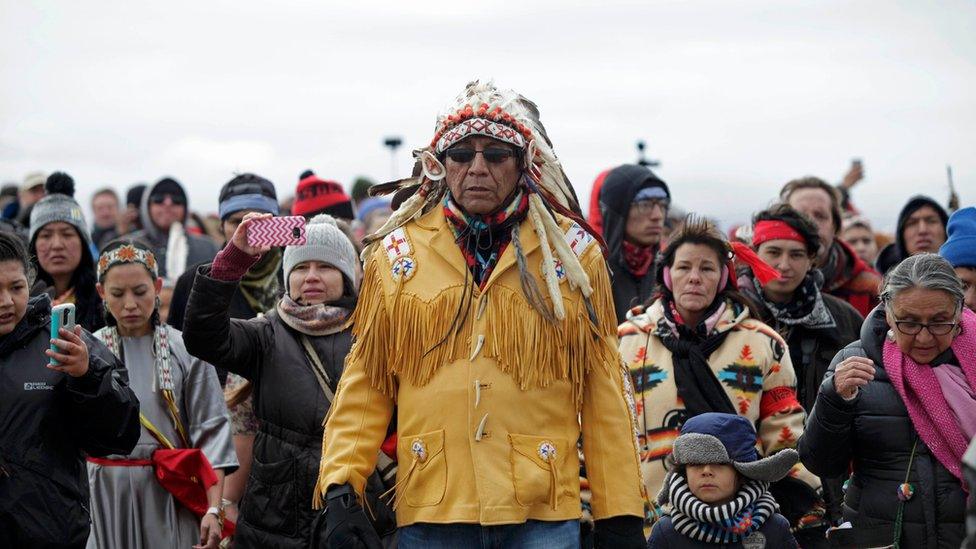
- Published5 December 2016
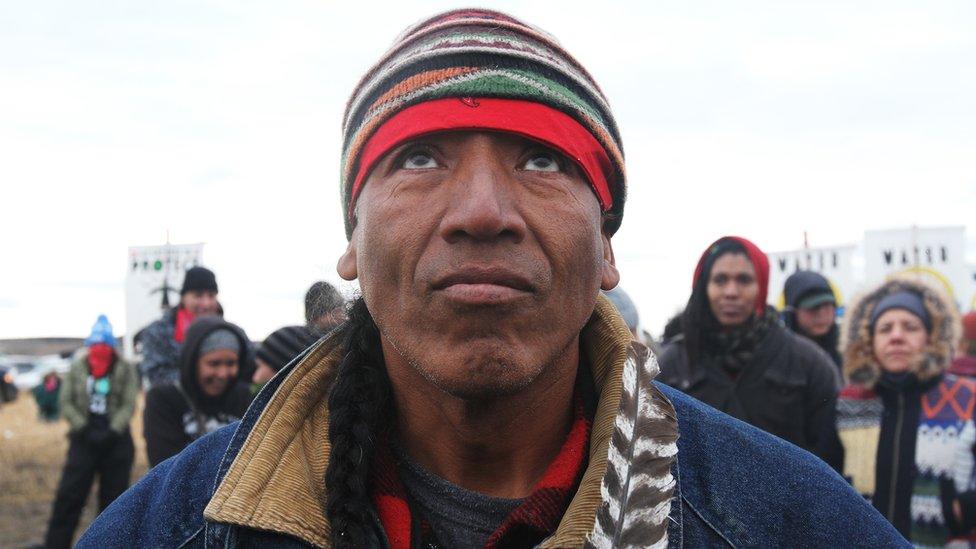
- Published2 December 2016
